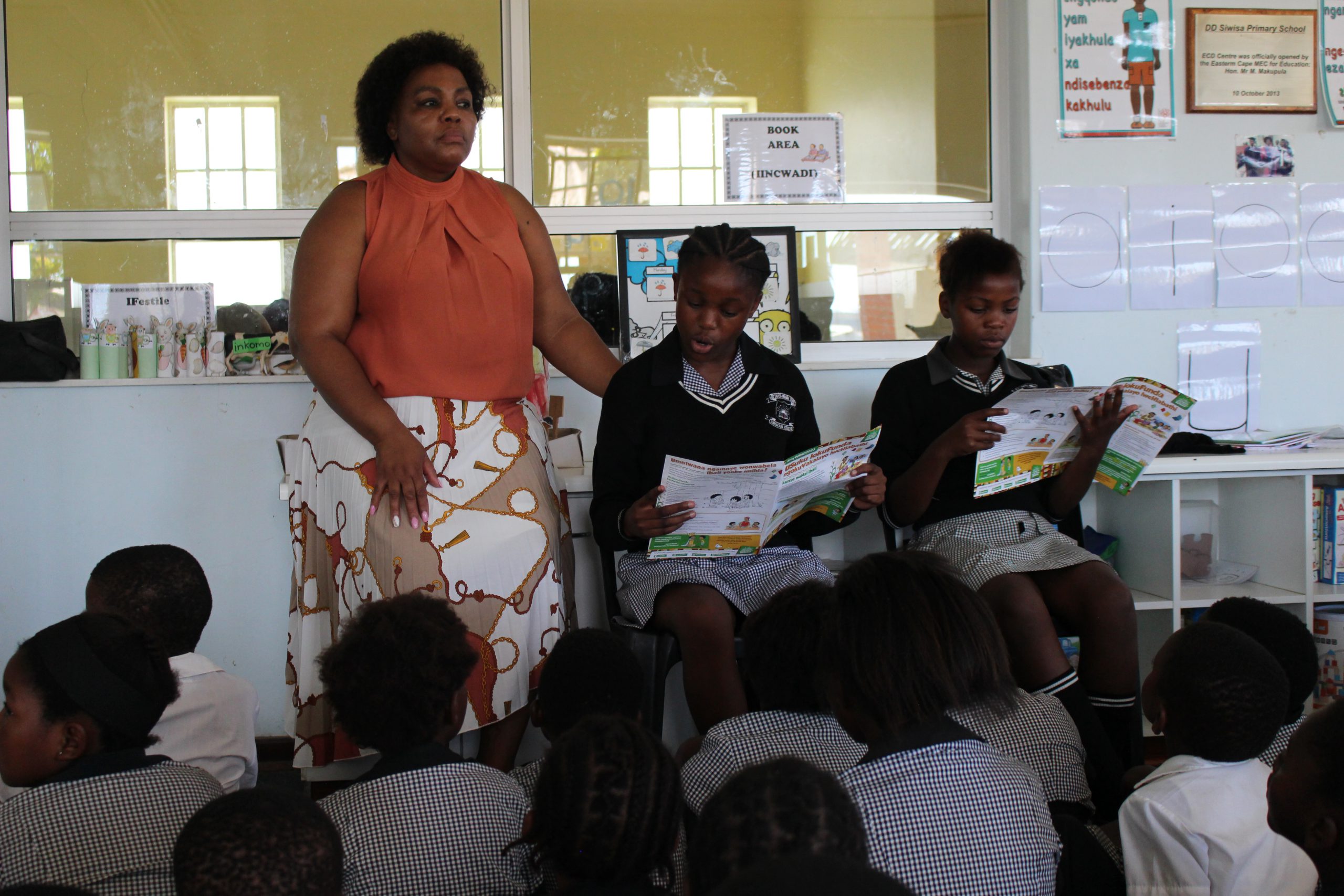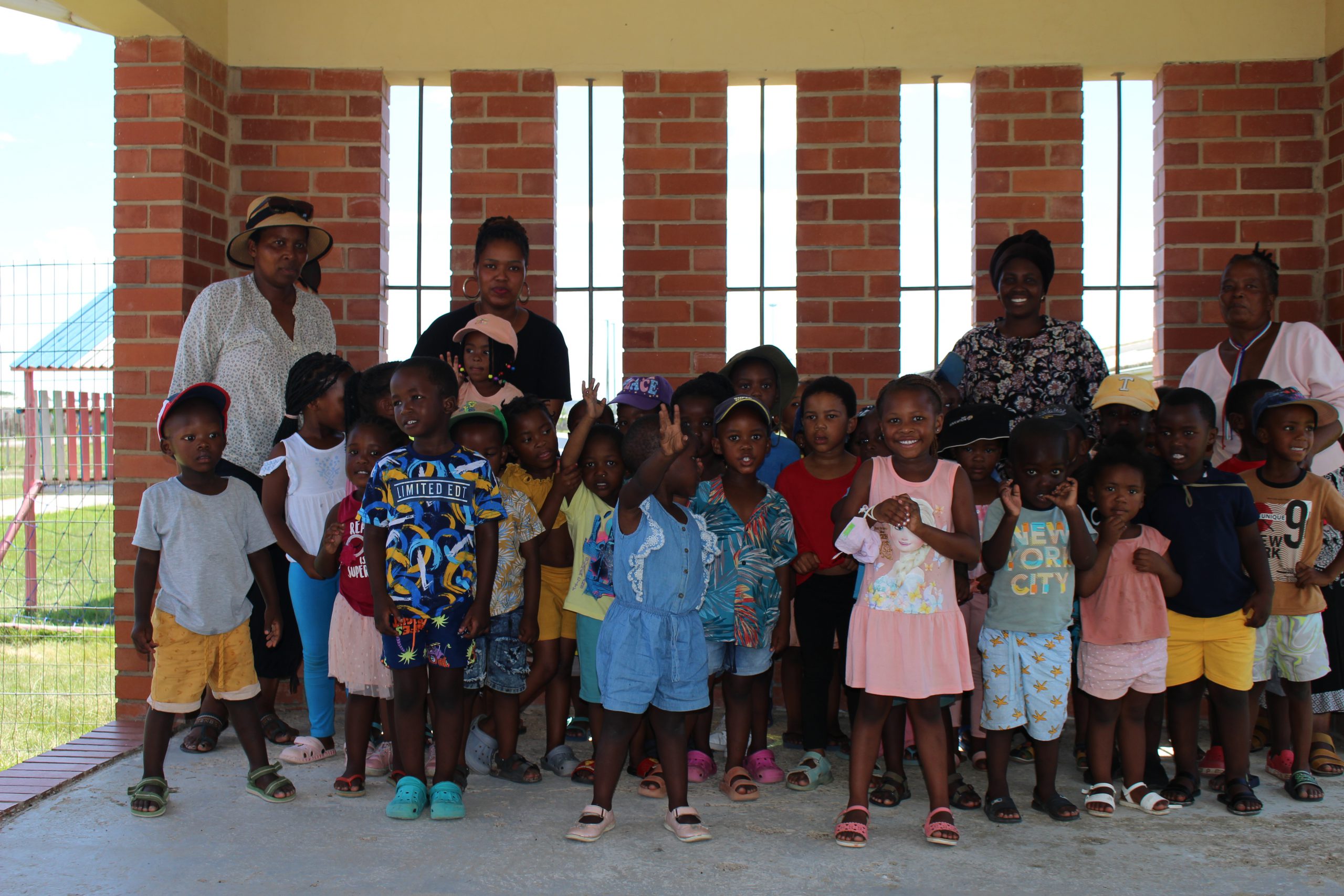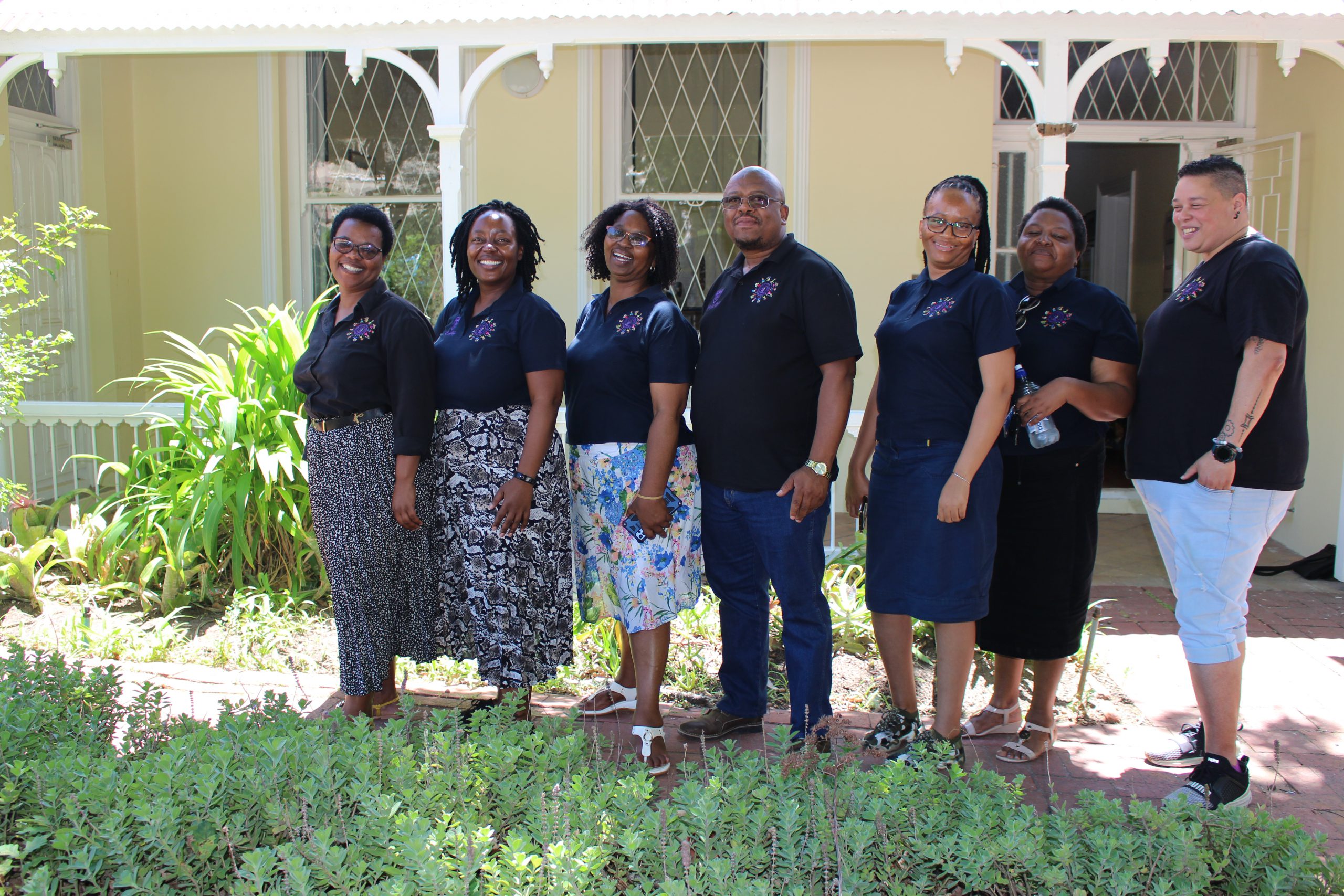By MALIKHANYE MANKAYI
The first of February was World Read Aloud day, and what a great day it was!
The purpose of the day was to celebrate the power of reading aloud to create community and bring literacy as a foundational human right.
Many schools participated in this read-aloud day, and some of these primary schools also invited the pre-schools to join the reading session. DD Siwisa Primary School invited four pre-schools to be part of the reading day: Little Flower, Siyazama, Tyhilulwazi and Phaphamani. Deputy principal Mrs Luvava, said that there is a library at the school, but due to the shortage of books, learners don’t have access to the library.
Two grade 7 learners, Iviwe Mawota and Onela Ntokota, gave feedback on how they felt after reading for the young learners. “We were very happy to read for the lower grades and to take part in the read-aloud day,” said Iviwe.
“To us, it helped improve pitch, tone, pace, volume, pause and eye contact,” said Onela.

Feedback from the Centre for Social Development
The coordinator for the Centre for Social Development (CSD) Nolly Shelle, gave feedback on Read Aloud day. “This event takes place every year. Last year we involved four primary schools and their ten feeder pre-schools,” she said. She added that they increased the number of participating primary schools to ten.
Nolly Shelle attended the day at DD Siwisa and witnessed learners from pre-school, and grades R to 3 getting stories read to them in isiXhosa. The grade 7s then took turns reading stories to the younger grades, who were divided into different groups. After the read-aloud day, the teachers indicated that they would finish reading the stories to the learners during class.
This reading drive helps or assists the learners in getting familiar with reading and more importantly, helps them in listening, communication skills, spelling and also in retelling a story or following instructions.
In preparation for the day, learners were given a book to take home to practice reading with their family members. Through this initiative, the number of books given to schools has increased from 5756 to almost 6000 books compared to previous years, indicating that more learners are reading.
Asisipho Bili from CSD also gave feedback about this programme. “From what I observed during the day, reading aloud promotes happiness in children, helps foster language development and social-emotional learning and highlights the importance of literacy. More importantly, also reading helps builds vocabulary because when you read aloud to children, they encounter new words, and it also improves active listening,” she said.
Zikhona Dukashe from CSD also gave feedback on this programme. “The reading session was good, and the kids enjoyed it. The fact that the reading was done by other learners also showed the younger kids that they could also one day be reading leaders,” she said.



